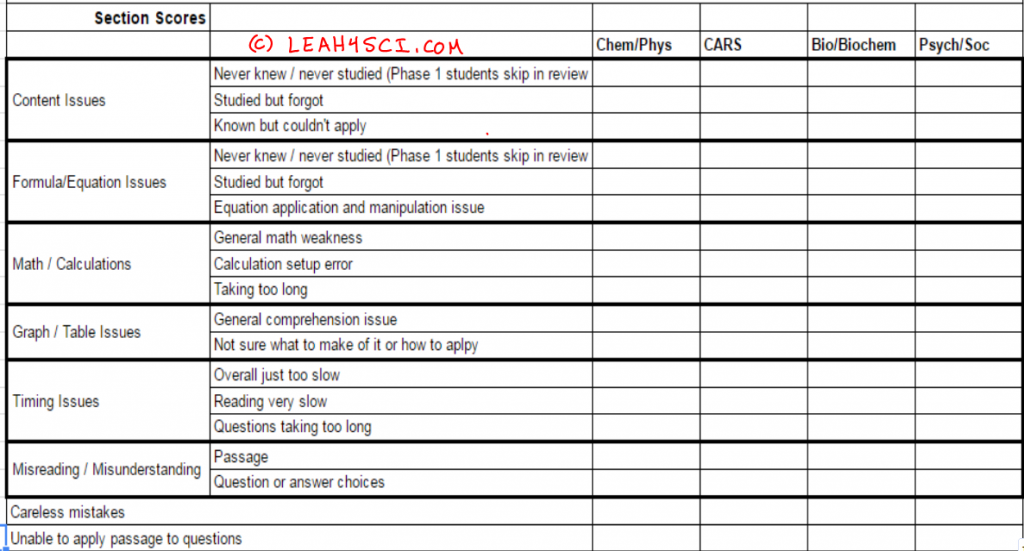

However, after a certain point, the rate of information you are adding and retaining will balance out with the rate of information you are forgetting. We can limit the amount of forgetting through certain learning principles, such as spaced repetition and active recall. The Ebbinghaus forgetting curve illustrates the fact that we don’t retain information forever. The reason for this is two-fold: (1) the balance of retaining versus forgetting and (2) burnout. However, at a certain point, further time spent studying will result in a score plateau, and after this point, further studying will actually result in a worse MCAT score outcome. You can visualize your own MCAT test performance as a bell-shaped curve, with the time spent studying on the X-axis and your score on the Y-axis.Īt early stages, more time spent studying will yield an improved score.


This is simply false, as demonstrated by the fact that many students who spent 6, 12, or 18 months studying for the MCAT don’t necessarily perform better than those who spend just 3 or 4 months. Students erroneously believe that the more time they spend studying, the better their final MCAT score will be. In reality, delaying the MCAT results in two overlooked drawbacks: (1) forgetting content and (2) burnout. Let’s first dispel the myth that delaying is always good because it gives you more time to study. The Misunderstood Costs of Delaying the MCAT Here’s an easy, step-by-step process on how to decide if you’re ready to take the MCAT, or if you should delay it. The MCAT is upon us – your test date is approaching and you’ve been studying hard, but perhaps you aren’t quite certain if you should take the MCAT or reschedule it for a later date. Premed & Medical Student Annual Scholarship.2020 Medical School Application Updates.


 0 kommentar(er)
0 kommentar(er)
